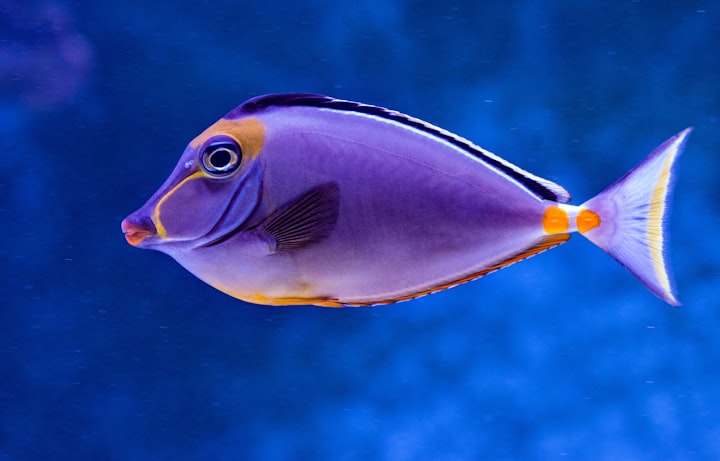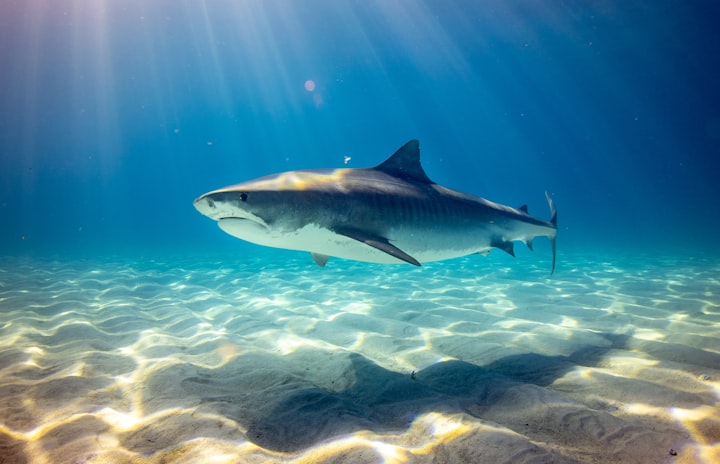Sea fish
Exploring the Diversity and Importance of Sea Fish

Sea fish, comprising a vast array of species, play a pivotal role in the ecosystems of our oceans and seas. From the smallest sardines to the majestic bluefin tuna, these aquatic creatures contribute to the intricate balance of marine life while also serving as a vital resource for human consumption and economic sustainability. In this expository article, we delve into the fascinating world of sea fish, exploring their diversity, ecological significance, and the challenges they face in the modern world.
Diversity of Sea Fish:
The oceans are teeming with a staggering diversity of fish species, estimated to be over 30,000. These species vary greatly in size, shape, color, behavior, and habitat preferences. Some, like the clownfish, seek refuge among coral reefs, while others, such as the mighty marlin, traverse vast distances in the open ocean.
Among the most iconic sea fish are the tuna species, renowned for their streamlined bodies and impressive speed. These include the bluefin tuna, which can weigh over 1,000 pounds and migrate thousands of miles across ocean basins. Other notable species include the colorful angelfish found in tropical waters, the fearsome-looking but harmless anglerfish inhabiting the deep sea, and the agile swordfish known for its long, sword-like bill.
From the tiny gobies to the massive whale sharks, sea fish occupy various niches in marine ecosystems, playing crucial roles in nutrient cycling, food webs, and maintaining the health of coral reefs and other habitats.
Ecological Importance:
Sea fish are integral components of marine ecosystems, contributing to both ecological stability and biodiversity. As predators, they help control populations of smaller fish and invertebrates, thereby preventing the unchecked proliferation of certain species that could disrupt the balance of the ecosystem.
Additionally, many fish species serve as prey for larger predators, including marine mammals like dolphins and seals, as well as seabirds such as pelicans and gannets. Their abundance ensures the survival of these higher trophic levels within the food web.
Furthermore, certain fish species, such as herbivorous parrotfish, play crucial roles in maintaining the health of coral reefs by grazing on algae that can otherwise smother and degrade coral colonies. This symbiotic relationship helps sustain the delicate balance of these biodiverse underwater ecosystems.
Beyond their ecological roles, sea fish are also of immense economic importance to coastal communities and global markets.
Human Dependence and Economic Significance:
Sea fish represent a critical food source for millions of people worldwide, particularly in coastal regions where fishing has been a way of life for generations. Fish provide essential nutrients such as protein, omega-3 fatty acids, and various vitamins and minerals, contributing to food security and nutrition.
Moreover, commercial fishing and aquaculture industries rely heavily on sea fish for economic sustenance. Tuna, salmon, cod, and shrimp are among the most commercially valuable species, supporting livelihoods and driving economic growth in many countries.
The global seafood trade is a multi-billion-dollar industry, with fish products being exported and imported to meet the demands of consumers across the globe. However, this commercial exploitation of sea fish has led to various sustainability challenges, including overfishing, habitat destruction, and bycatch of non-target species.
Challenges and Conservation Efforts:
Despite their ecological and economic importance, sea fish face numerous threats that jeopardize their populations and the health of marine ecosystems. Overfishing, driven by increased demand and advancements in fishing technology, has depleted stocks of many commercially valuable species, leading to declines in fish populations and ecological imbalances.
Habitat destruction, pollution, climate change, and ocean acidification further exacerbate the challenges facing sea fish. Coral reefs, mangrove forests, and estuaries, critical habitats for many fish species, are under threat from human activities and environmental degradation.
To address these challenges and promote the conservation of sea fish, various initiatives and strategies have been implemented worldwide. These include establishing marine protected areas, implementing sustainable fishing practices, regulating fishing quotas, reducing bycatch, and promoting responsible seafood consumption.
Additionally, raising public awareness about the importance of preserving marine ecosystems and supporting sustainable fisheries is essential for fostering a culture of conservation and ensuring the long-term viability of sea fish populations.
Conclusion:
Sea fish are not only fascinating creatures that inhabit the vast depths of our oceans but also vital components of marine ecosystems and global food systems. Their diversity, ecological significance, and economic importance underscore the need for concerted efforts to conserve and sustainably manage fish populations and their habitats.
By promoting responsible fishing practices, reducing pollution, and mitigating the impacts of climate change, we can safeguard the future of sea fish and ensure the health and resilience of our oceans for generations to come
About the Creator
Pat paf
inspirational and educative writer
Enjoyed the story? Support the Creator.
Subscribe for free to receive all their stories in your feed. You could also pledge your support or give them a one-off tip, letting them know you appreciate their work.





Comments
Pat paf is not accepting comments at the moment
Want to show your support? Send them a one-off tip.